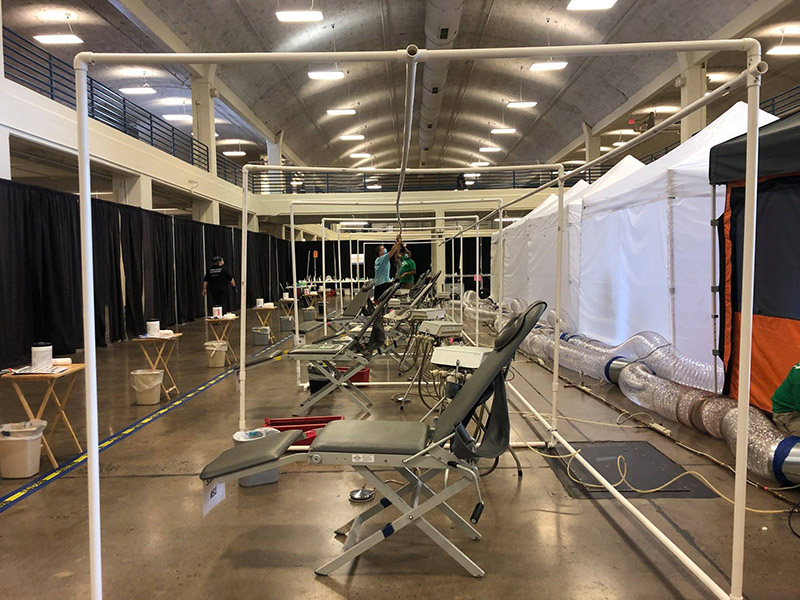- Happy Activism: A Sustainable Way to Create Change Without Burnout - February 9, 2026
- The Meaning of Critical Thinking: A Key Skill for Navigating Today’s Information Landscape - November 3, 2025
- Grandparents Can Develop Activist Grandchildren - September 29, 2025
Last Updated on January 17, 2025
Professional activists have activism skills, like strategic planning, leadership, and coalition building.
But you can make change with the skills you already have.
Jeff works for a construction company running fiber cable to support internet service. On a lunch break, Jeff chats with his coworker Rabel. Rabel tells him that he and his wife will be helping out at the Remote Area Medical (RAM) event in their town. RAM provides free health care for people who can’t access it through traditional systems.
“Wow, Rabel, that’s great. How did you get involved in this?”
“My wife’s dentist volunteers there. Since Maya’s activism is improving health care options, she signed up to help. And brought me along,” he chuckles. Glancing at Jeff, he asks, “Do you want to give it a try?”
“I don’t have activism skills. I wouldn’t know what to do.”
“Well, I’ve seen your on-the-job skills, and RAM could certainly use help with providing the right utilities to each of the medical areas.”
 Jeff never went to college, but his experience doing freelance cable installation got him into his current company. He had no idea his skills could be used to help support activism.
Jeff never went to college, but his experience doing freelance cable installation got him into his current company. He had no idea his skills could be used to help support activism.
So, Jeff worked with Rabel that weekend. The long lines of people seeking medical care was sobering. The staff’s dedication touched him deeply. And he realized that he could use his skills to support causes important to him.
Activists Using Their Skills for Change
Jeff found that his wiring and electronics skills were a massive help to RAM. So, he became a regular volunteer, finding that the payoff in making the world a better place was worth the hard work.
Jeff had a stereotype of what it meant to be an activist. He thought activists were college graduates working full-time at nonprofits. But Rabel widened his viewpoint and now he understands the variety of skills that can make the world a better place.
What about you? Can you cook? Make meals for activists. That’s contributing to movement support, where people help activists on the front line. Other movement support tasks include childcare and administrative support.
Do you have friends? Of course you do. Talk to your friends about what you’d like to see change in your community. That’s advocacy. People are much more responsive to changing their minds on an issue if they know the person talking with them.
Are you a creative person? Do you write, paint, act, knit, or sing? Learn how creatives use their art as activism. Artists Carl Gombert and Mark Hall make a difference for their cause. Sparky and Rhonda Rucker use music to teach about history. Sarah Corbett uses her crafting skills to get in the door of major companies and pitch her cause. There is even a rapper who supports animal rights!
Skills You Can Apply to Activism
Don’t worry about learning ‘activism skills.’
Instead, ask yourself if you have performed skills that can be applied to activism.
For example:
- If you can cook Thanksgiving dinner for your extended family, then you can plan a community meeting
- You can organize a group to stop a change of zoning in your town, so you can arrange a boycott
- If you can go door to door to ask neighbors to donate to the March of Dimes, then you can canvass for a political candidate
- You can teach someone how to run a copy machine, so you can teach someone how to keep membership records
It makes sense to use already-existing skills for your activism work. These are honed by constant use, and they emanate naturally from you. Don’t discount the skills you have already, even if you developed them in situations unlike activism.
If you have done activism work in the past, inventory those skills. Activist Randy Schutt created the Activist Skills and Experiences Questionnaire, an assessment tool to allow activists to inventory their skills and experiences. The questionnaire is in The 5-Step Activism Path Workbook, or at The Vernal Project.
[Everyone has an ordinary superpower. What is yours?]
Still worried about getting started? Find a person who can mentor you.
Find a Place To Use Your Skills for Change
Jeff still volunteers for the RAM weekends. But he spent time thinking about which cause was closest to his heart and found his place in activism. Now Jeff teaches basic electrical skills to at-risk kids. Along the way, he shows them potential careers in the trades and how to make that happen.
[Like what you’ve read? Follow the blog so you don’t miss any content.]
READ NEXT
Become an Activist: Learn More About What’s On Your Sign?
- Focus your passion and find the cause closest to your heart among the myriad of causes.
- Match your skills with the type of activism work that best suits you.
- Find an activism opportunity that works for your life.
- Determine if your social justice work truly makes an impact.
- Stay motivated in your activism for the long-term.
I Want To Be an Activist, But I’m Afraid
How Do Activists Describe the Cause Closest to Their Heart?




What a great, inspiring resource! Thank you for sharing. I am currently using my writing skills (such as they are) in an activism project here in my community. It is very rewarding.
I’m so glad you are using your skills to make a difference in your community. What is your project?
Inspirational read indeed! Followed along from the link party 😊
https://masalavegan.com/
So glad you enjoyed it!
Pingback: Me, an Activist? What Is an Activist and Why Should I Be One?
Pingback: It's Time for You To Make the World a Better Place • How To Get Started